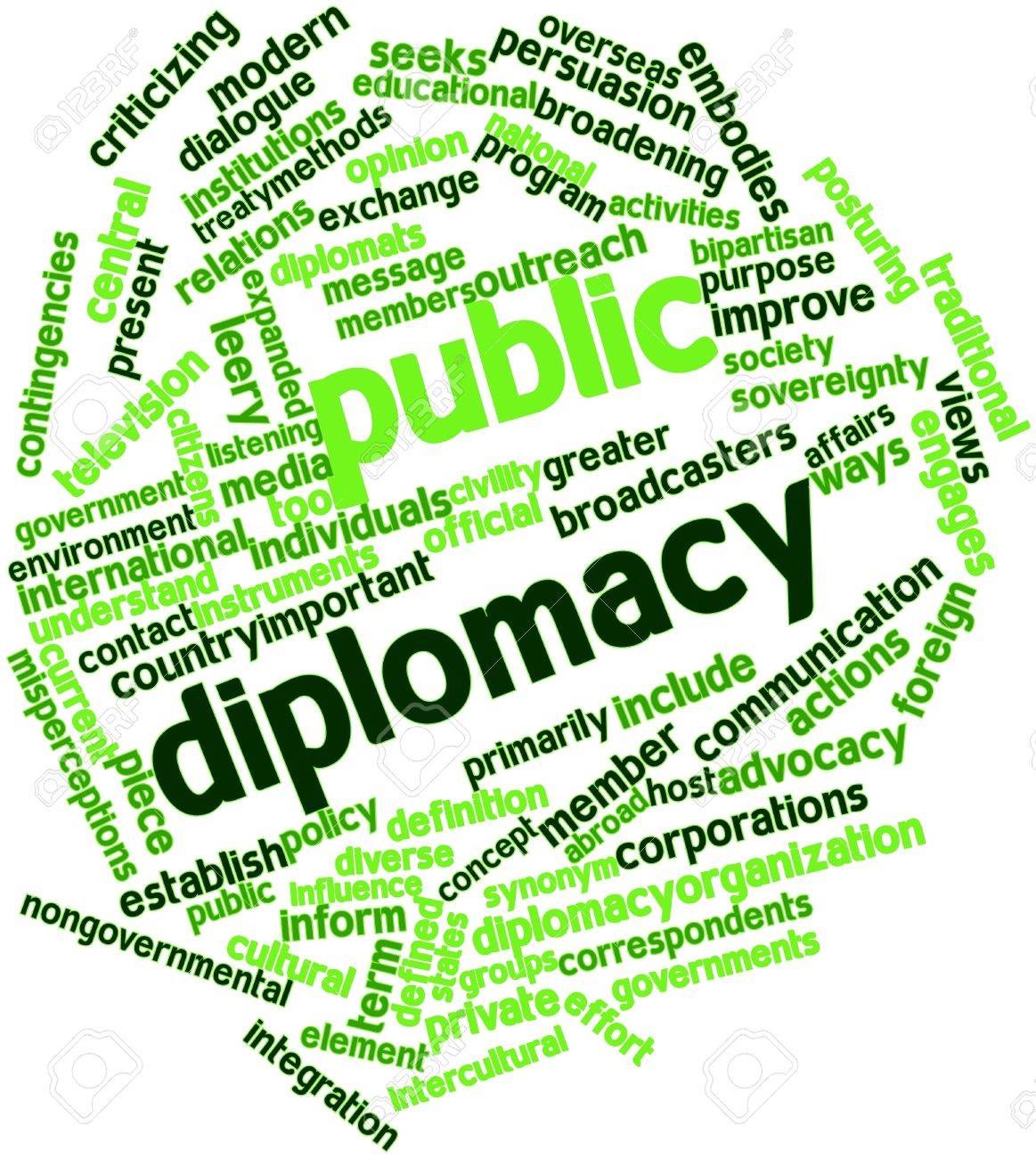In today’s time and age, social media has become embedded in the daily workings of not only corporate organisations but also that of the government authorities. Governments around the world are looking to innovate and find ways to engage with tech savvy audience of today.
As in the words of Hugh Elliot, former Director of Communications, Foreign and Commonwealth Office,
“Diplomacy is about understanding and exercising power. Power is about presence. Today, to be known, you must be digital.”
Hugh Elliot’s words are a clear manifestation of how governments today think of social media. UK government understands that digital technology and social media spaces have an enormous potential to engage, do business and provide services.
Foreign and Commonwealth Organisation is an important part of the Whitehall and thus pioneered digital transformation within the organisation.
Quick Facts about Foreign and Commonwealth Office.
Commonly known as Foreign Office, it is the UK government’s department responsible for protecting and promoting British interests worldwide.
Their network consists of 22 Central Foreign Office social media accounts, 268 Embassies, High Commissions, Consulates in 168 countries with pretty active social media accounts. Collectively they have over 7 million followers on their more than 700 official social media profiles across the world, on channels such as Facebook, Twitter and Instagram, with their most popular content reaching hundreds of thousands of people.
“Today it’s (digital communications) absolutely central to the work of the Foreign and Commonwealth Office. It’s a key tool in our diplomatic arsenal and skilful digital communications is increasingly non-negotiable for modern diplomacy. Those who do it best will set the agenda and ultimately effect change.
Jack Pearson, Senior Digital Communications Manager.
Customer Services: FCO has a vision to provide its services digitally by default, allowing them to deliver more effective and responsive services. Thus maximising the resource available for those in need of assistance. Online platforms offered that cost effective solution for them.
As per Rob Eason, Managing Director, Global Digital Technology at FCO Services,
We are looking at Big Data and big data analytics as methods of improving our insight into how our global network runs. The analysis we hope to get will allow us to optimise the performance of our overseas estate and create efficiencies.
FCO is putting more of its consular services online so that any British national in need of help can get high quality assistance in real time 24/7.
From 16 July our Consular services in Mexico City will be operating from Río Lerma 71, Col. Cuauhtémoc. If you need consular assistance, please make an appointment on our website or call (0052) 55 1670 3200 (option 4). More info: https://t.co/7c6Hie4DC7 pic.twitter.com/h8fTPhj5dg
— UK in Mexico🇬🇧🇲🇽 (@UKinMexico) July 16, 2018
Influencing and engaging:
Former British Foreign Secretary William Hague said in 2010 during his speech on Britain’s foreign policy,
“There is now a mass of connections between individuals, civil society, businesses, pressure groups and charitable organisations which are also part of the relations between nations and which are being rapidly accelerated by the internet.”He also set out Britain’s intention to pursue a Foreign Policy that “makes the most of the abundant opportunities of the 21st century”.
Campaigns are an important tool in influencing and shaping public opinion. Foreign and Commonwealth Office use it to make strategic interventions so as to capitalise on opportunities to change minds and turn debates. They talk about the issues people care about and do it in a way which helps them to understand the world around them.
Promoting and defending #HumanRights is a fundamental part of the UK's foreign policy. Read about the FCO's work in the 2017 Annual Human Rights and Democracy Report https://t.co/I5K7IbQEpt #HRDReport pic.twitter.com/RWmBK20syD
— Foreign, Commonwealth & Development Office (@FCDOGovUK) July 16, 2018
Social Media Champions:
FCO understands that in order to build credibility and authenticity, it has to take people behind the scene and bring them closer to the action so that they understand what’s at stake.
The ambassadors around the world do excellent work in demystifying the work they do and engaging in debate. Although diplomacy requires discretion but it also requires outspoken champions who can explain its value, explain how it works and above all to talk about issues it looks to address. From human rights to democracy, to the rules of trade, there are arguments to be made and the ambassadors are often at the front line of making them.
Building national brand and forging strong bilateral relations:
Governments around the world are using social media to forge strong bilateral relations. Foreign and Commonwealth Office also draws on the power of those who can best promote national brand and also forge strong bilateral relations with other countries. All embassies are encouraged to have soft power strategies to harness the full spectrum of Britain’s cultural and creative industries along with celebrating UK connections with the host country.
Internal Communications:
Foreign and Commonwealth office is innovating its internal communications by introducing various avenues,
- FCO has a digital champions network: It comprises of 100+ staff who engage in monthly online meetings.
- FCO has more than 700+ staff engaging on their internal social media channel called people finder.
- Closer engagement with senior officials: HMA Tom Fletcher used google hangout to engage with FCO colleagues, simultaneously a live Q & A session was taking place on twitter.
Lessons for Others
- Governments love to control messaging but in today’s digital age, they have to innovate. Foreign and Commonwealth office presents an interesting case study about how government departments can make innovation their tradition.
- Risk taking is an essential component of engagement but it doesn’t have to be reckless. Mixing and matching mundane communications with innovative posts on daily basis can be the way to go for government organisations.
- Digital world is all about spontaneity and personalisation. This often blur lines between personal and professional lives of the civil servants with their official social media account.
- Government organisations have tendency to build large following in a short duration due to the nature of their work. However huge numbers are useless if not used for meaningful engagement. It is important that government accounts are regularly engaging with their audience to deliver high quality services.
- Building a brand of reliability and veracity is of utmost importance for any government organisation. Although social media offers a huge opportunity in this area but it comes with its traps as well.
- Legitimacy of digital diplomacy: ‘non-intereference in domestic affairs’ is at the heart of Vienna- conventions but sometimes the very best of digital diplomacy can feel suspiciously close to that line. Something for the Convention to think about.
Organization: Foreign and Commonwealth Organisation
Industry: Government
Name of Organization Contact: Alison Daniels
Authored by: Arooj Prem
If you have concerns as to the accuracy of anything posted on this site, please send your concerns to Peter Carr, Program Director, Social Media for Business Performance.
References
- Department for Digital, Culture, Media & Sport. (1 March 2017). UK Digital Strategy 2017. Retrieved from https://www.gov.uk/government/publications/uk-digital-strategy/uk-digital-strategy#annex-embedding-digital-in-public-service-delivery
- Department for Business, Energy & Industrial Strategy. (18 February 2013). UK government digital strategies and guidance on the use social media. Retrieved from https://beisdigital.blog.gov.uk/2013/02/18/uk-government-digital-strategies-and-guidance-on-the-use-of-social-media/
- Foreign and Commonwealth Office. (n.d). Social media use. Retrieved from https://www.gov.uk/government/organisations/foreign-commonwealth-office/about/social-media-use
- Flood, Gary. (2017, February 8). FCO Services: Getting Serious About Innovation [web article]. Retrieved from http://www.thinkdigitalpartners.com/news/2017/02/08/fco-services-getting-serious-innovation/
- Foreign and Commonwealth Office. (n.d). Digital Strategy. Retrieved from https://www.gov.uk/government/publications/the-fco-digital-strategy
- Elliott, Hugh. (2017, March 30). Digital Diplomacy: are we the champions?. Retrieved from https://blogs.fco.gov.uk/guestpost/2017/03/30/digital-diplomacy-are-we-the-champions/
- Pearson, Jack. (2017, March 27). Diplomacy – one tweet at a time. Retrieved from https://blogs.fco.gov.uk/jpearson/2017/03/27/diplomacy-one-tweet-at-a-time/
- Ahmed, Anum. (2016, April 28). How does digital support diplomatic excellence? Easy, attend the FCO’s fascinating course and get inspired!. Retrieved from https://medium.com/@AnumAhmed/how-does-digital-support-diplomatic-excellence-2b4e2963dce5
- Foreign and Commonwealth Office. (n.d). Future FCO. Retrieved from https://assets.publishing.service.gov.uk/government/uploads/system/uploads/attachment_data/file/521916/Future_FCO_Report.pdf
https://smbp.uwaterloo.ca/2018/07/digital-diplomacy-the-british-way/







